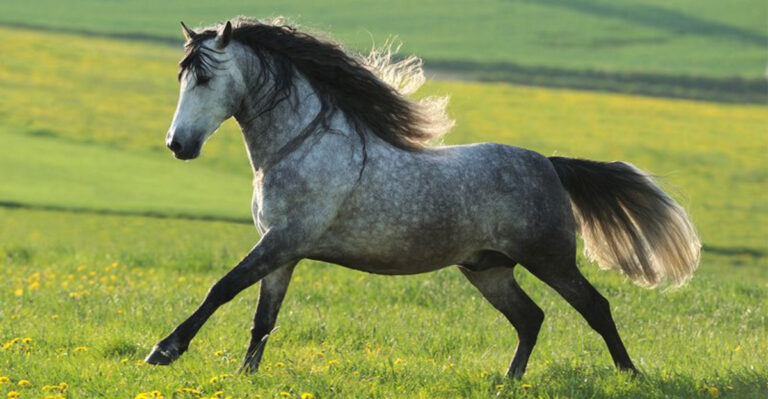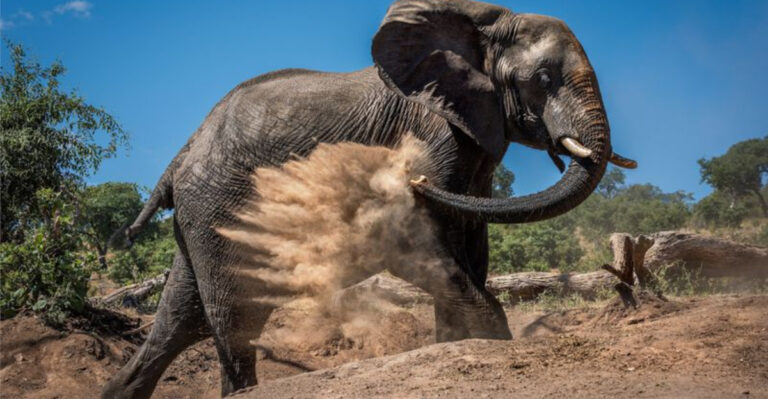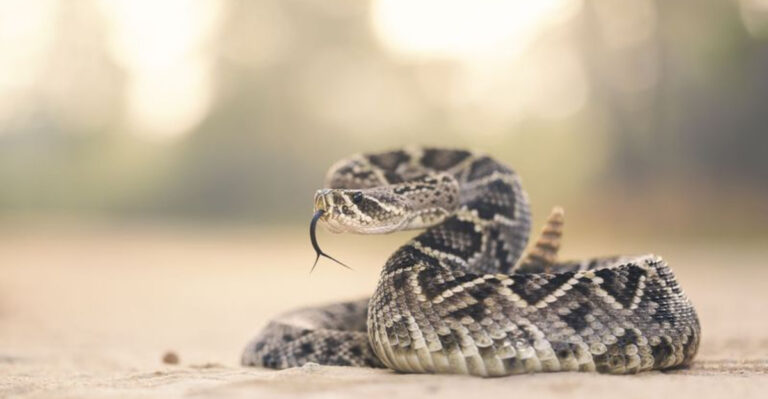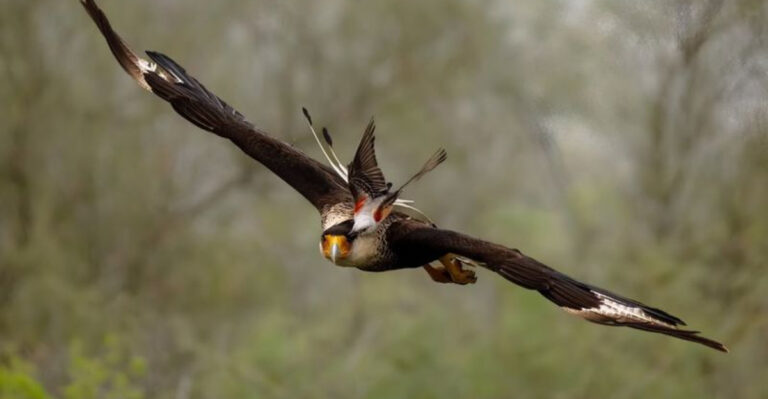16 Wild Mammals That Form Life-Long Friendships
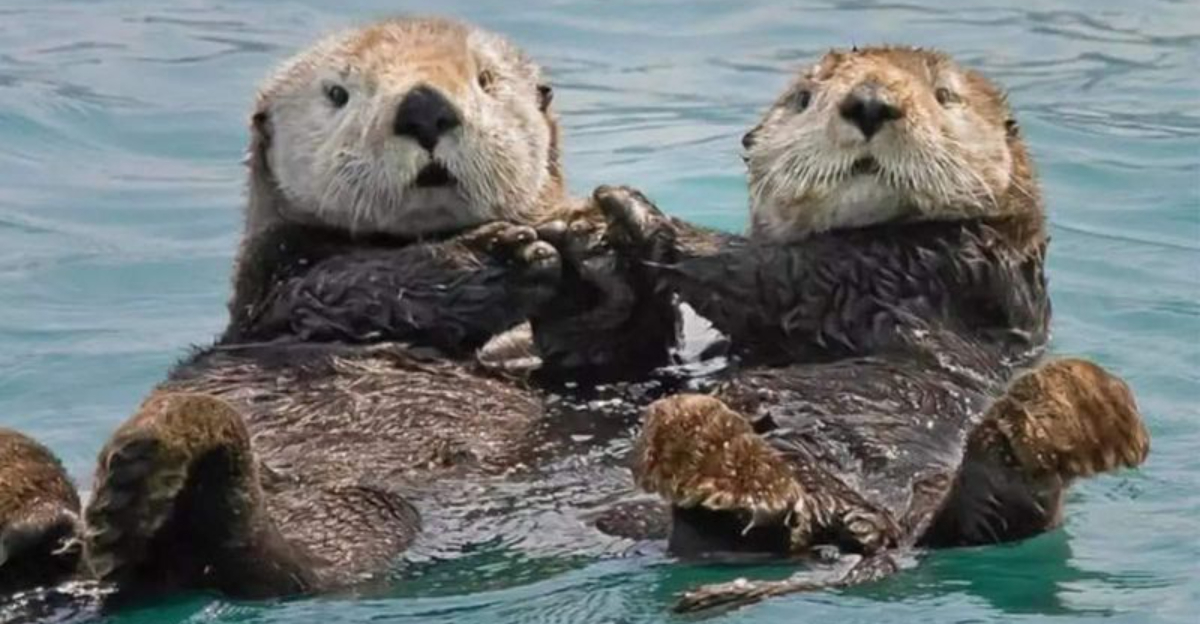
In the wild world of mammals, some creatures defy the stereotype of solitary survival. These fascinating animals form bonds that last a lifetime, showcasing the beauty of friendship in the animal kingdom.
From unlikely pairings to devoted duos, these friendships highlight that love knows no bounds. Let’s explore wild mammals that prove friendships are not just a human trait.
1. Elephants
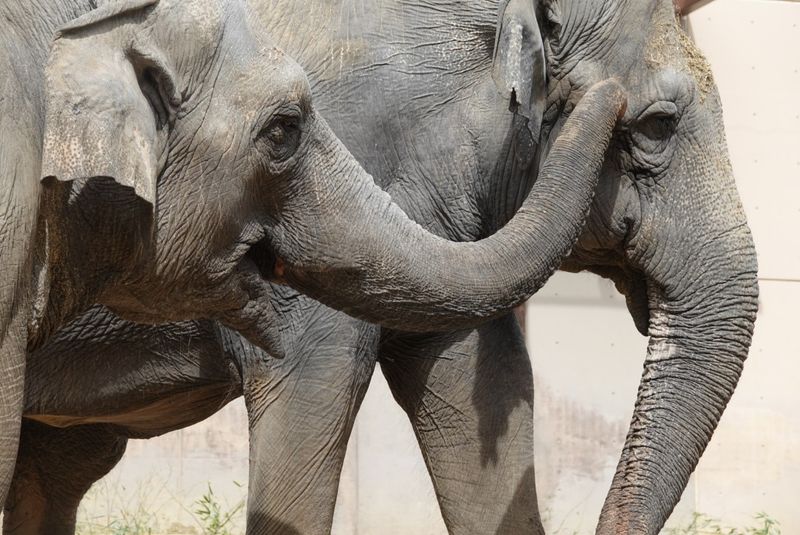
Elephants are known for their remarkable emotional intelligence and social bonds. They form lifelong friendships, often seen interlocking trunks or huddling together for comfort.
In the wild, these gentle giants mourn lost companions, demonstrating their deep emotional connection. Their friendships are not limited to blood relations, as they often adopt orphaned calves. It’s this empathy that makes elephants one of the most socially complex animals.
2. Dolphins

Dolphins might just be the comedians of the sea. They form pods where friendships thrive, often seen leaping in synchronized harmony. Their social skills are so sharp, they even have names for each other, identified by unique whistles.
These friendships are crucial for survival, helping them hunt and protect each other from predators. Dolphins’ playful antics are a testament to their joyous camaraderie.
3. Wolves
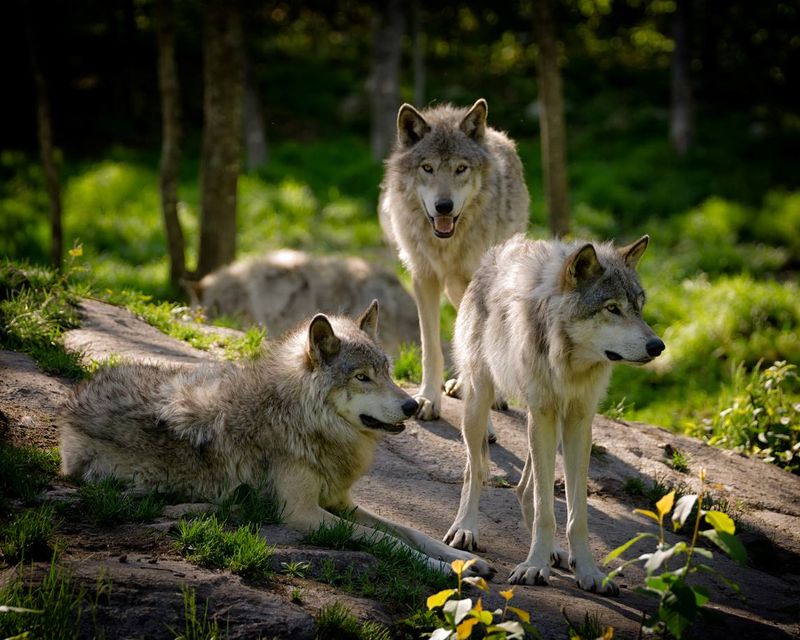
Wolves live in tightly-knit packs, where cooperation is the key to survival. These packs are not just about hierarchy but are built on strong familial bonds. Each member plays a vital role, whether it’s babysitting pups or patrolling territory.
Their howls often serve as a group anthem, strengthening their unity. Wolves’ friendships and loyalty are as fierce as their reputation.
4. Meerkats
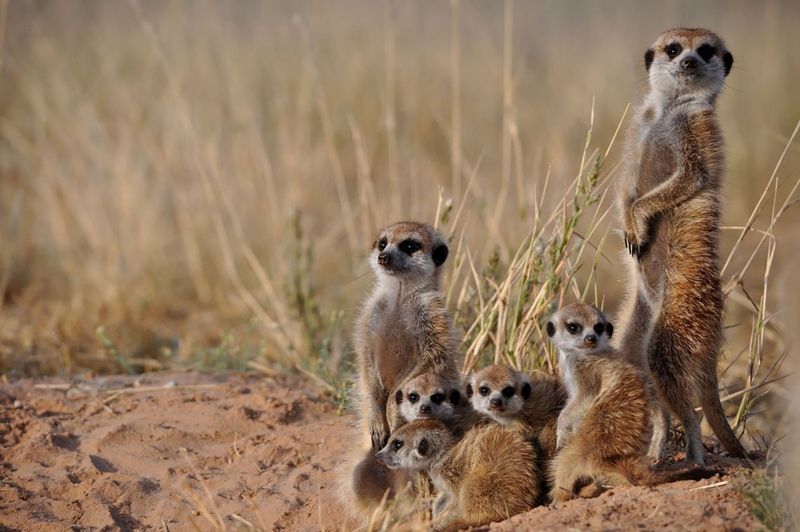
Meerkats are the vigilant sentinels of the desert. Living in large mobs, they rely on each other for safety and survival. While one keeps watch, others dig for food or play with pups, showcasing teamwork.
Their constant communication with chirps and peeps keeps the group connected. Meerkats’ friendships are all about trust and collaboration.
5. Chimpanzees
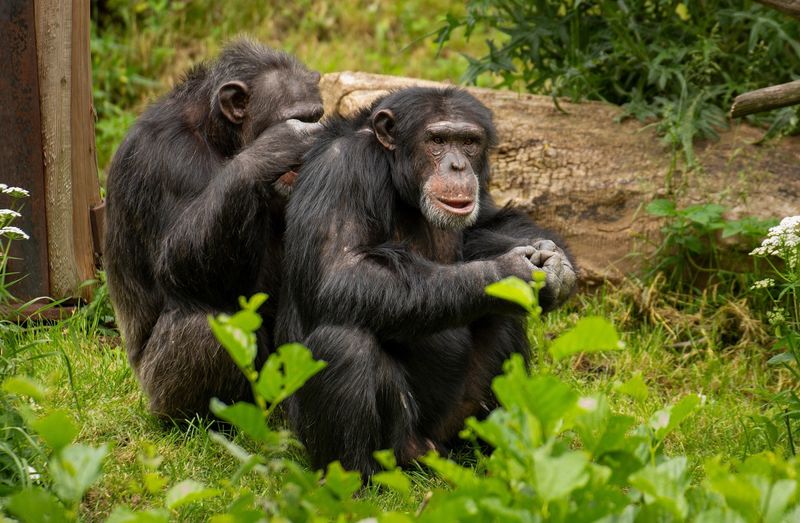
Chimpanzees exhibit friendships that rival humans in complexity. Grooming is a favorite pastime, strengthening bonds and ensuring cleanliness. They form alliances that can influence group dynamics and even leadership.
These friendships are so vital that chimps will share food and protect each other from threats. Among chimpanzees, a friend is indeed cherished.
6. Baboons
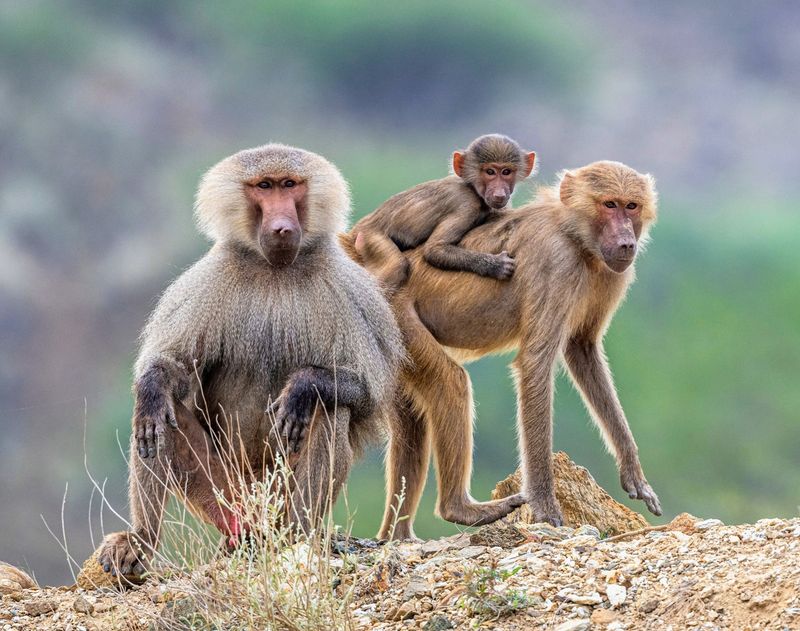
Baboons are the social butterflies of the savannah. Living in large troops, their friendships are pivotal for protection and grooming.
These connections are often built through grooming sessions and play, revealing a softer side to their tough exterior. Baboons navigate complex social hierarchies, where friendships can grant access to resources and mates.
7. Lions
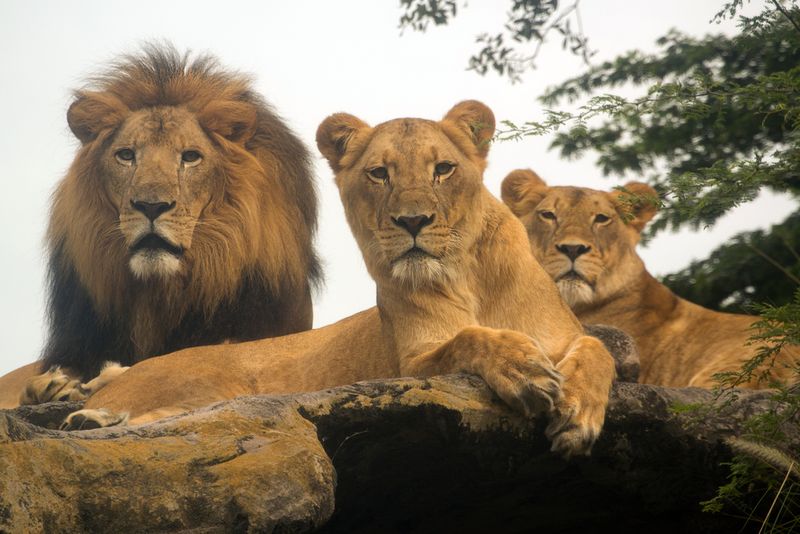
Lions are the only big cats that live in prides, showcasing a social life unique among felines. These prides consist of related females and their cubs. Friendships among lionesses ensure the safety of their young, as they hunt and raise cubs together.
Males, though transient, form coalitions with brothers or friends to dominate new prides. Lions’ friendships are all about power and family ties.
8. Prairie Dogs
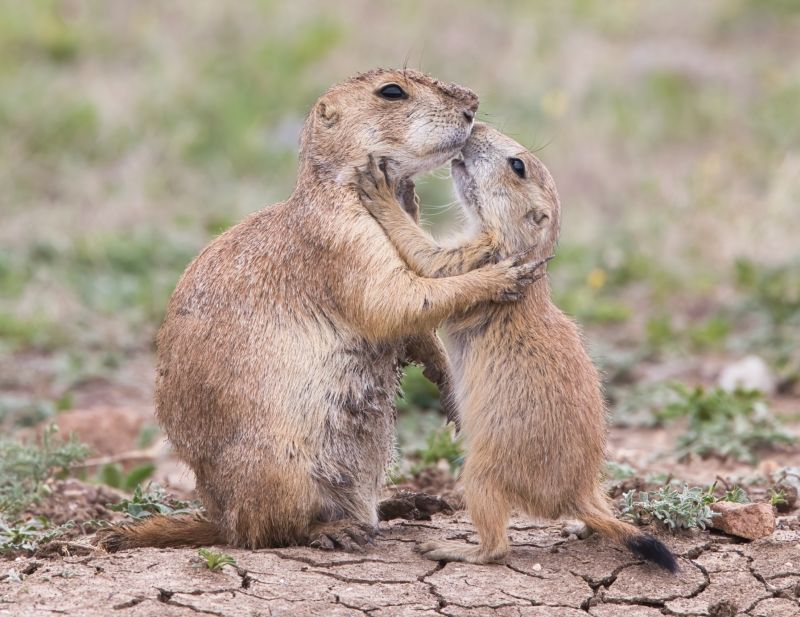
Prairie dogs might be small, but their social lives are grand. These rodents live in large colonies called towns, where friendships are key to thriving.
They greet each other with ‘kisses’—a touching of teeth—and have a complex language of barks and chirps.
Their vigilance and cooperation protect against predators. Prairie dogs’ friendships are all about community spirit.
9. Giraffes
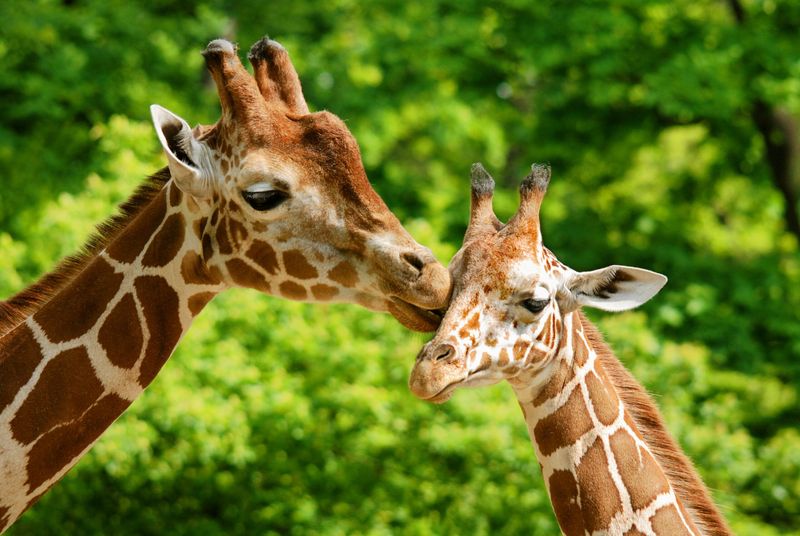
Giraffes, with their towering grace, form loose herds where friendships bloom. These relationships are often seen in females who raise calves together.
Their long necks allow them to keep an eye on each other, fostering a sense of security. While not as tight-knit as some, giraffes’ friendships offer companionship amid the vast savanna.
10. Hyenas
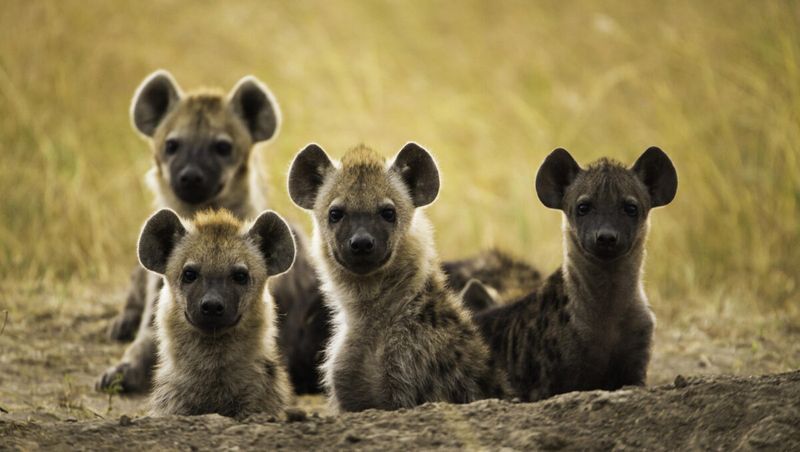
Hyenas might have a bad reputation, but their friendships are surprisingly sophisticated. Living in matriarchal clans, they form alliances to hunt and protect their young. Their social structure is complex, with females leading the way.
Despite fierce competition, friendships are essential for survival, proving hyenas are more than just scavengers.
11. Orcas
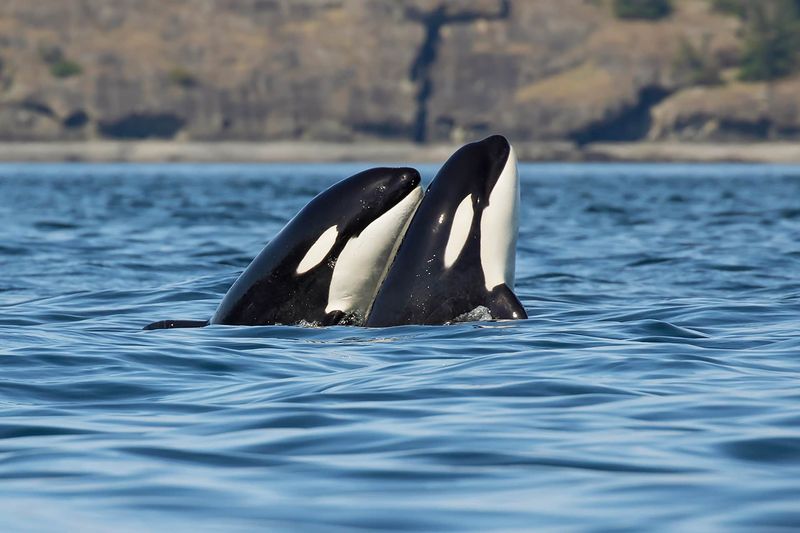
Orcas, or killer whales, are the apex socialites of the sea. They live in family pods led by matriarchs, showcasing deep bonds and communication. Their sophisticated hunting tactics rely on teamwork and trust.
Orcas even display playful behavior, such as breaching and spy-hopping. These friendships last a lifetime, making orcas family-first animals.
12. Bonobos
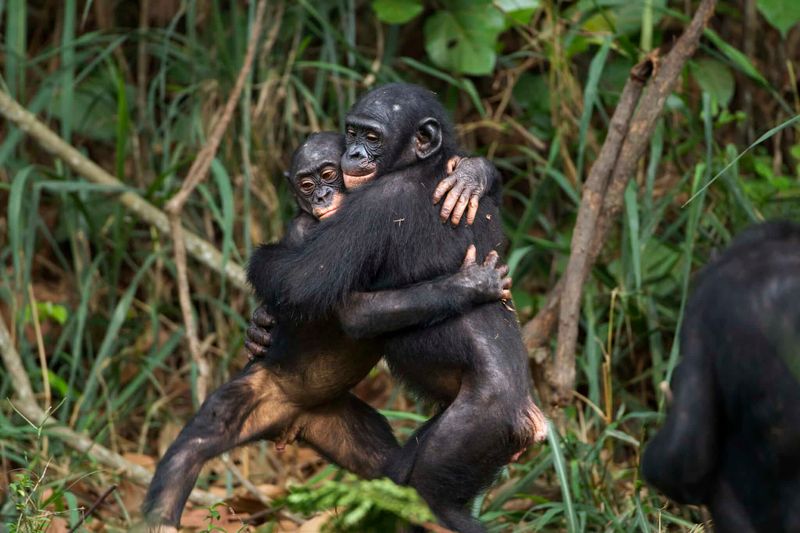
Bonobos, unlike their chimpanzee cousins, are peaceful diplomats. Friendships are formed through grooming and sharing food, creating a harmonious society.
Their social interactions often involve playful and affectionate behavior, which strengthens bonds. Bonobos are proof that peace and friendship can prevail in the wild.
13. Otters
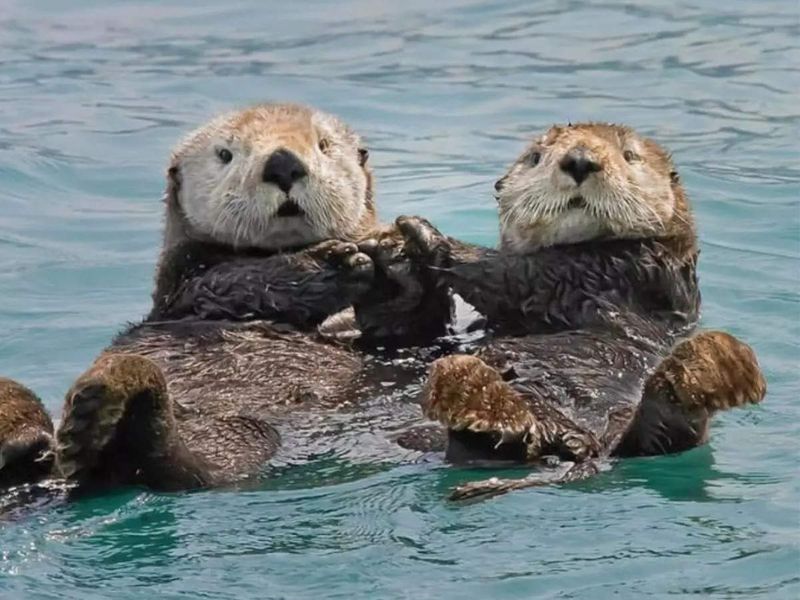
Otters are the adorable cuddle-bugs of the water world. Sea otters hold hands while sleeping on their backs to avoid drifting apart, a literal representation of their bond. This behavior is not just cute but essential for survival.
Their social nature extends to hunting and playing together, proving that otters are as delightful as they seem.
14. Bats
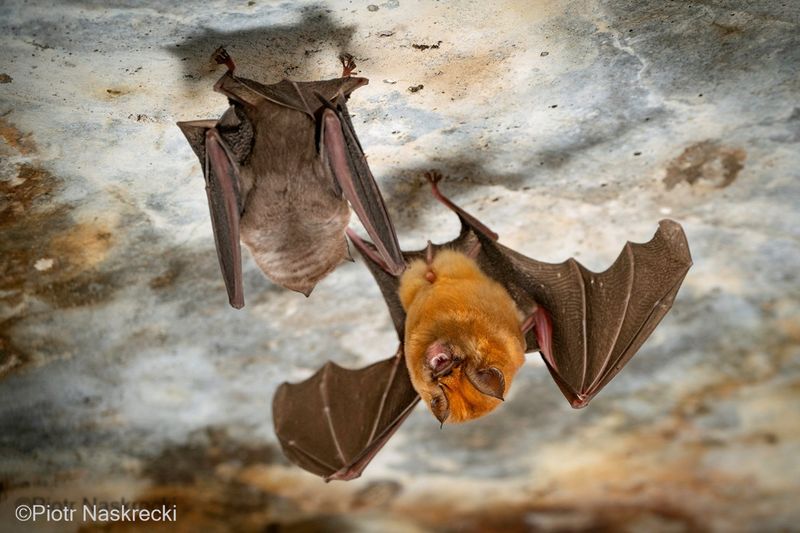
Bats, often misunderstood, are social creatures that thrive in colonies. These nocturnal mammals rely on each other for warmth and protection. Friendships are formed through grooming and food sharing, strengthening the colony.
Their echolocation skills allow them to navigate and communicate in the dark, proving bats are more than just spooky silhouettes.
15. Kangaroos
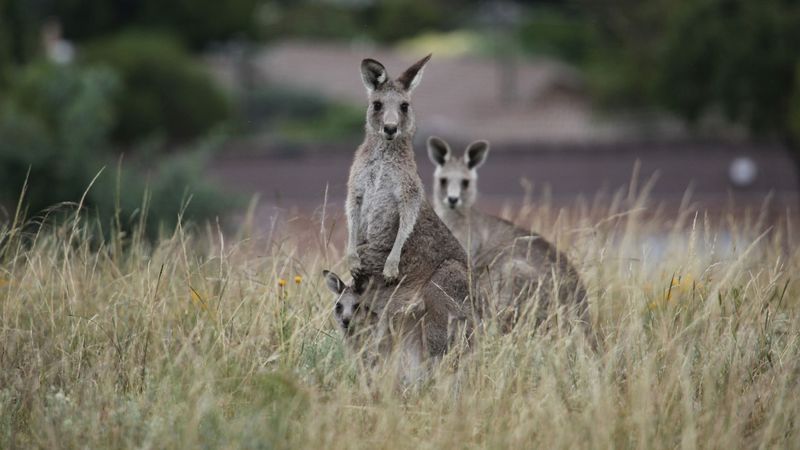
Kangaroos, the bounciest of friends, live in groups known as mobs. These social gatherings offer protection and companionship.
Males often form bonds through play-fighting, while females socialize with their joeys in tow. These friendships ensure survival in the harsh Australian landscape, making kangaroos true mates in the wild.
16. Capuchin Monkeys
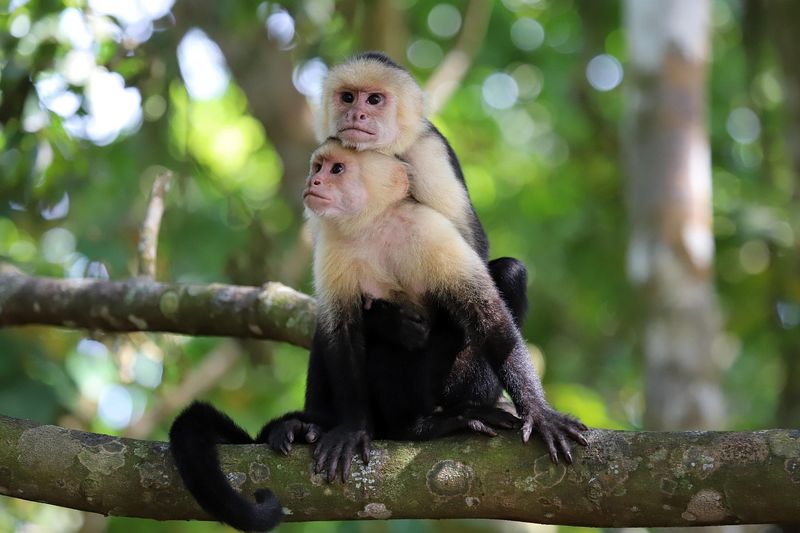
Capuchin monkeys are the curious explorers of the jungle. They live in troops where friendships are essential for learning and protection. Their playful antics and grooming sessions strengthen bonds within the group.
Capuchins’ intelligence and social skills are key to navigating their environment, proving that curiosity and camaraderie go hand in hand.


